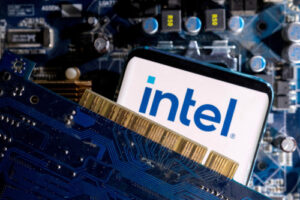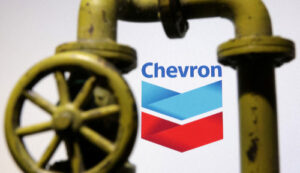(Reuters) -Constellation Energy and Microsoft have signed a data center deal to help resurrect a unit of the Three Mile Island nuclear plant in Pennsylvania in what would be the first-ever restart of its kind, the companies said on Friday.
Big tech has led to a sudden surge in U.S. electricity demand for data-centers needed to expand technologies like artificial intelligence and cloud computing. Nuclear energy, which is nearly carbon-free and broadly considered more reliable than energy sources like solar and wind, has become a popular option for technology company’s with uninterrupted power needs and climate pledges.
“Nuclear plants are the only energy sources that can consistently deliver on that promise,” Constellation Chief Executive Officer Joe Dominguez said in a statement.
Constellation’s shares were up 14% in early trading and have risen more than 100% so far this year.
A relaunch of Three Mile Island, which had a separate unit suffer a partial-meltdown in 1979 in one of the biggest industrial accidents in the country’s history, still requires federal, state and local approvals.
The deal would help enable a revival of Unit 1 of the five-decades-old facility in Pennsylvania that was retired in 2019 due to economic reasons. Unit 2, which had the meltdown, will not be restarted.
Constellation plans to spend about $1.6 billion to revive the plant, which it expects to come online by 2028.
Reuters first reported on the potential restart in July.
Sources told Reuters at the time that Constellation hoped it would receive federal support for Three Mile Island that was similar to what was given to the Palisades Nuclear Generating Station, which received a $1.5 billion conditional loan for a relaunch from the administration of U.S. President Joe Biden.
Under the Constellation-Microsoft deal, Microsoft will purchase energy from the restarted plant for a period of 20 years. The Three Mile Island unit will provide 835 megawatts of energy to the tech giant.
A restart is expected to be challenging, but as power demand spikes, the virtually carbon-free electricity source is seeing renewed support from tech companies.
“This agreement is a major milestone in Microsoft’s efforts to help decarbonize the grid in support of our commitment to become carbon negative,” Bobby Hollis, vice president of energy at Microsoft, said in a statement.
Microsoft has also signed a power purchase agreement with Washington-state fusion company Helion, which says the plant will be online by 2028, far earlier than many scientists say fusion will become commercial.
Major tech executives, including ChatGPT developer OpenAI CEO Sam Altman and Microsoft co-founder Bill Gates, have touted nuclear energy as a solution to the growing power needs of data centers.
Altman has backed and is the chairman of nuclear power startup Oklo, which went public through a blank-check merger in May, while TerraPower – a startup Gates co-founded – broke ground on a nuclear facility in June.
Nuclear plants generated about 18.6% of the total electricity in the U.S. last year, according to Energy Information Administration data.
The power supply deals with A.I. data centers are also facing increased scrutiny. A similar deal between Talen Energy and Amazon signed earlier this year has been challenged by a group of electric utilities alleging it could spike costs for customers or hamper grid reliability.
Financial details of the Microsoft-Constellation deal were not disclosed. The companies declined to give more details on the agreement.
(Reporting by Laila Kearney in New York, Mrinalika Roy and Sourasis Bose in Bengaluru; additional reporting by Tim Gardner in Washington; Editing by Janane Venkatraman, Sriraj Kalluvila and Nick Zieminski)






